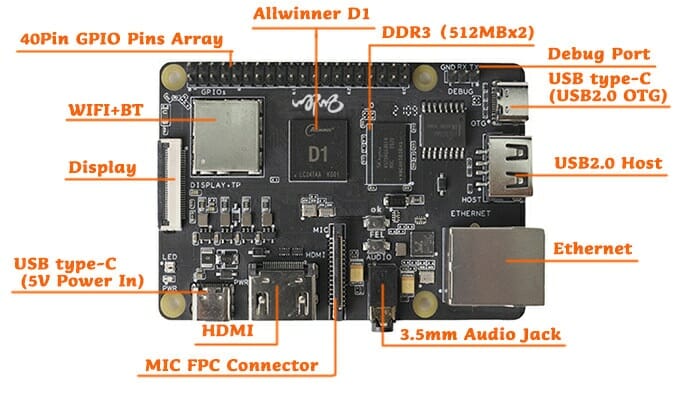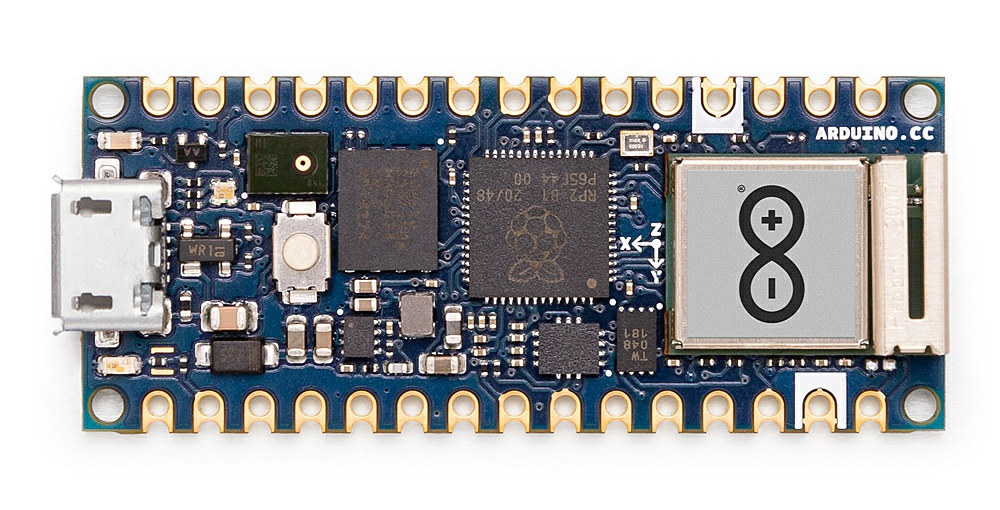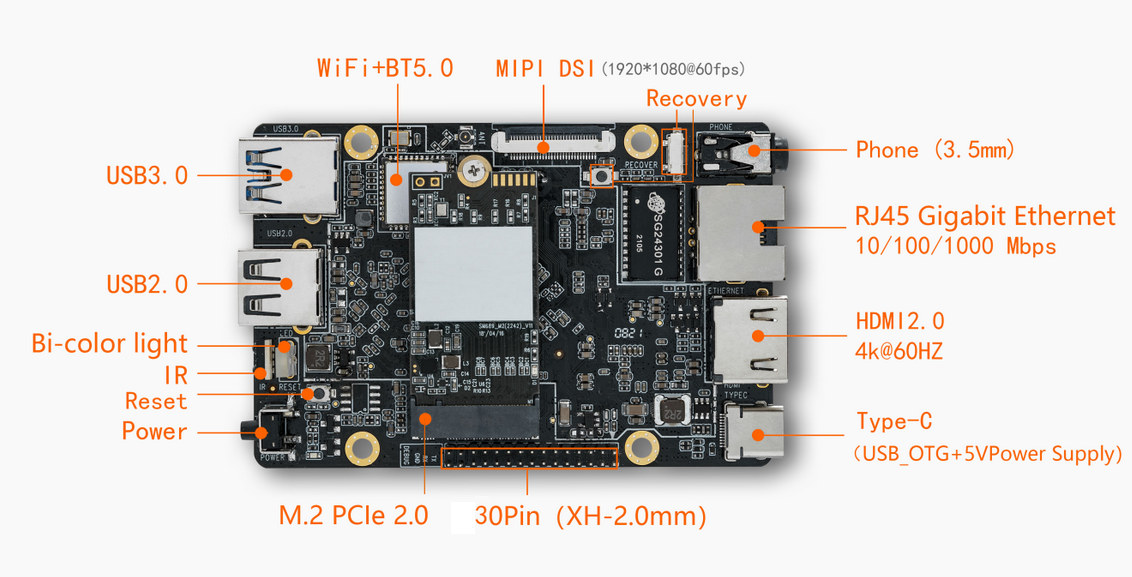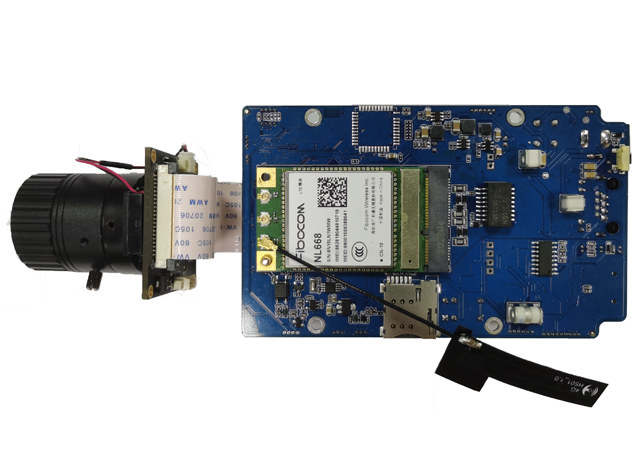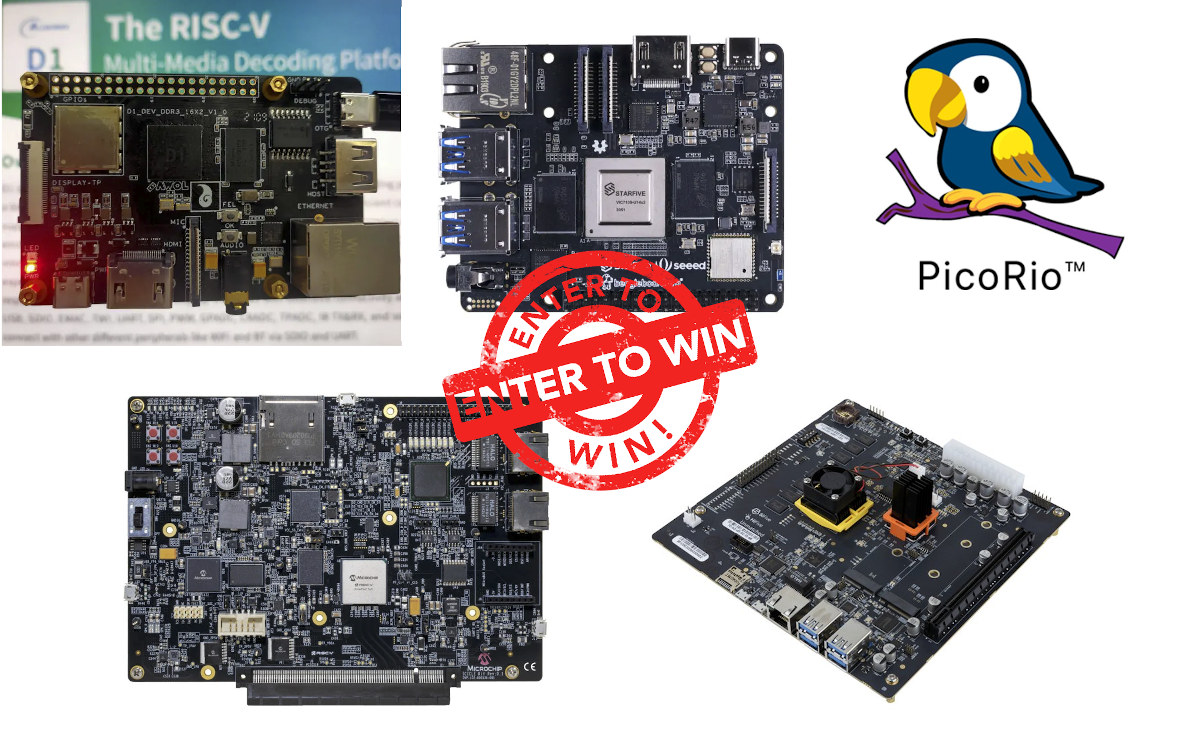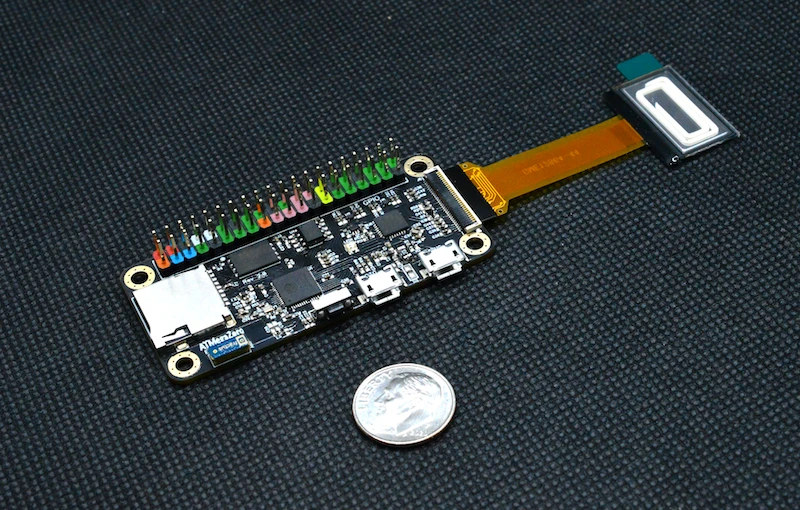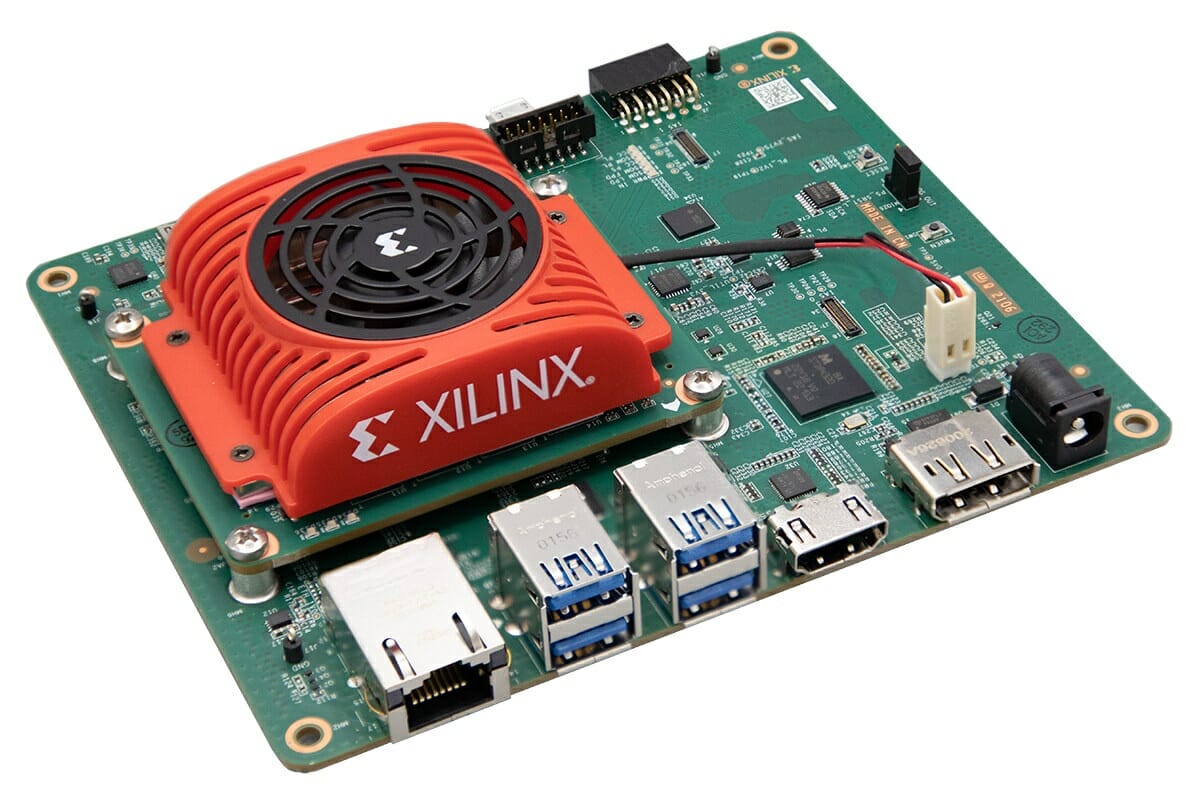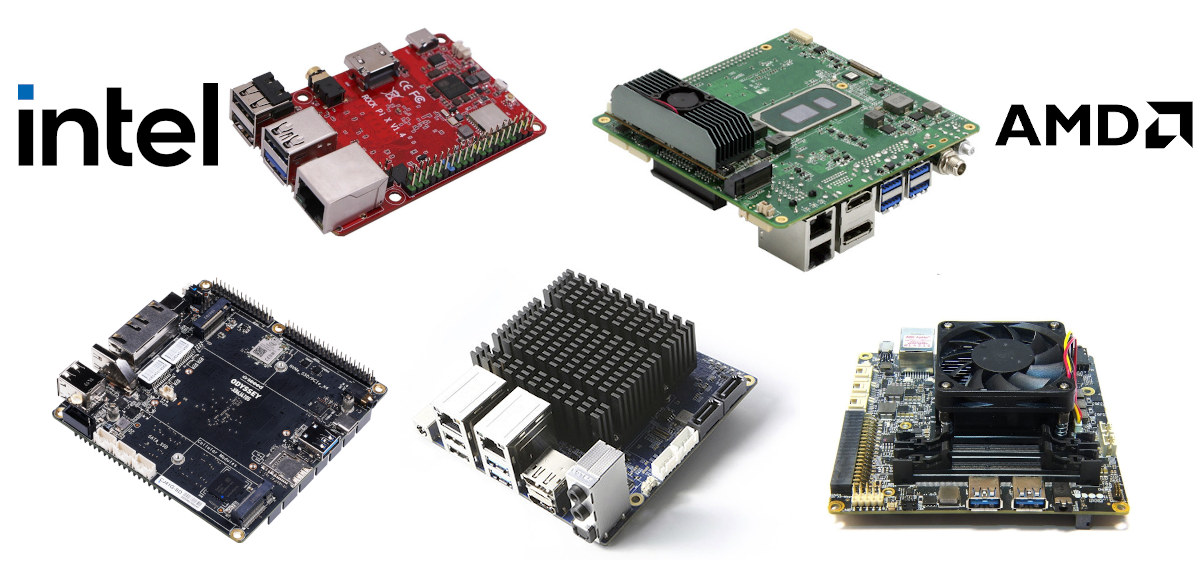Last month, we wrote about Allwinner D1 SBC & processor that promised to offer a relatively low-cost RISC-V Linux solution. We were not given a name at the time, but there was a logo of Nezha, a fictional character from Chinese literature. The board is now known as the Nezha SBC and has been launched on Indiegogo for $99 and up as a board designed for IoT projects running Linux, but can also be purchased directly on Aliexpress for the same price. [Update: It can also be purchased on Taobao for 599 RMB] Nezha SBC specifications: SoC – Allwinner D1 single-core XuanTie C906 64-bit RISC-V processor @ 1.0 GHz with HiFi4 DSP, G2D 2D graphics accelerators Memory – 1GB DDR3 memory Storage – 256MB SPI NAND flash, MicroSD card slot Video Output – HDMI 1.4 port up to 4Kp30, MIPI DSI & touch panel interface up to 1080p60 Decoding – […]
Arduino Nano RP2040 Connect WiFi & Bluetooth board launched for $25.50
The Arduino Nano RP2040 Connect board was announced the day of Raspberry Pi Pico launch as one of the third-party boards featuring Raspberry Pi RP2040 dual-core Cortex-M0+ microcontroller. At the time all we had was renders of the board, later on, the company showcased some mass product photos, and then released Arduino Core mbed 2.0 for the board last month. But it’s only today that it has become possible to purchase Arduino Nano RP2040 Connect board for $25.50 on Arduino store with headers. Nano RP2040 Connect specifications: MCU – Raspberry Pi RP2040 dual-core Cortex M0+ microcontroller @ 133 MHz with 264 kB of embedded SRAM Storage – 16MB Flash IC (AT25SF128A) Connectivity – WiFi 4 & Bluetooth LE via Nina W102 uBlox module (Yes, that’s an ESP32 module.) USB – Micro USB port I/Os via 2x 15-pin headers (through and castellated holes) 20x digital I/O pins, 20x PWM pins, 20x […]
ROC-RK3566-PC single board computer supports up to 8GB RAM, M.2 NVMe SSD’s
Firefly has now launched a Rockchip RK3566 single board computer named ROC-RK3566-PC, following the launch of Station P2 RK3568 mini PC on Indiegogo last March, and the completion of the campaign a few days ago. The quad-core Cortex-A55 SBC supports up to 8GB ECC memory, up to 128GB flash, M.2 2242 MVMe SSD’s, HDMI 2.0 and MIPI DSI video interfaces, Gigabit Ethernet, and more. ROC-RK3566-PC specifications: SoC – RockChip RK3566 quad-core Cortex-A55 @ up to 1.8GHz with Arm Mali-G52 2EE GPU with support for OpenGL ES 1.1/2.0/3.2. OpenCL 2.0. Vulkan 1.1, 0.8 TOPS NPU, 4Kp60 H.265/H.264/VP9 video decoder System Memory – 2GB, 4GB, or 8GB LPDDR4 RAM with support for “all-data-link ECC” (TBC: Because the info I have so far is that ECC is supported on RK3568, not on RK3566) Storage 32GB, 64GB, or 128GB eMMC flash M.2 PCIe 2.0 socket for M.2 2242 NVMe SSD MicroSD card slot Video […]
SigmaStar SSC33x Camera SoCs are pin-to-pin compatible with Hisilicon Hi3516/Hi3518 processors
We’ve been writing a fair amount of posts about SigmaStar SSD201/SSD202D processors for smart displays in recent times. But the company also has various camera SoC’s with SSC333, SSC335, SSC336, SSC337, SS338, and SSC339 parts. Those processors feature one or two Cortex-A7 core, embedded RAM, as well as an optional AI accelerator called DLA (Deep Learning Accelerator). The chips manufactured using a 28nm or 22nm process, with the latter being used for parts with the AI accelerator. Most of the Sigmastar SCC33x processors also happen to be pin-to-pin compatible with HiSilicon Hi3516 or Hi3518 SoC that are found in a wide range of IP cameras. Let’s take SSC336D/SSC336Q processor as an example since it comes with the AI accelerator and we have a datasheet courtesy of linux-chenxing.com. SigmaStar SSC336D/SSC336Q camera SoC key features & specifications: CPU – Dual-core Arm Cortex-A7 processor @ 1 GHz with Neon and FPU Embedded Memory […]
RISC-V International to give away 1,000 RISC-V development boards
The best way for a new platform to get good software support is to bring hardware into the hands of developers. That’s exactly what RISC-V International is doing by inviting developers to sign up for a RISC-V developer board sponsored by RISC-V and contributing members. There are 1,000 boards on offer with 1GB to 16GB RAM depending on the target project from five companies and organizations namely Allwinner, Beagleboard.org, SiFive, Microchip Technology (previously Microsemi), and RIOS. Here are the stated goals of the giveaway: Spur innovation Enable new opportunities for the next generation of developers to work with the RISC-V ISA Provide a platform For testing To write programs that run on RISC-V Develop software Integrate existing software stacks Optimize ecosystem software Share feedback on the product such as ease to integrate software stacks, develop and test extensions, etc. The company did not provide an exact list of development board […]
ATMegaZero ESP32-S2 board supports OLED displays
EspinalLab ATMegaZero board was introduced last year with Raspberry Pi Zero form factor, the Arduino Leonardo compatible, 16 MHz Microchip ATmega32U4 microcontroller, and a connector for an optional OLED display. The company is now back with an update following the same form factor with ATMegaZero ESP32-S2 board equipped with a more powerful ESP32-S2 single-core processor @ 240 MHz with WiFi connectivity, and most of the same features, including OLED display support, plus a micro USB OTG port and an RGD LED. ATMegaZero ESP32-S2 board specifications: WiSoC – Espressif Systems ESP32-S2 single-core processor @ 240 MHz with WiFi RAM – 8MB PSRAM Storage MicroSD card 256Mbit (32MB) SPI Flash (note: only 16MB can be used for now due to firmware limitations) Display – 32-pin OLED display port compatible with 30-pin SSD1306 and SH1106 based displays Wireless Connectivity – 2.4 GHz WiFi 4 up to 150 MHz with 3D antenna USB – […]
Xilinx Introduces Kria K26 SoM and vision AI devkit based on Zynq Ultrascale+ XCK26 FPGA MPSoC
Silicon vendors will usually focus on chip design, and provide an expensive evaluation kit to early customers, leaving the design of cost-optimized boards and system-on-modules to embedded systems companies. But Xilinx has decided to enter the latter market with the Kria portfolio of adaptive system-on-modules (SOMs) and production-ready small form factor embedded boards starting with Kria K26 SoM powered by Zynq UltraScale+ XCK26 FPGA MPSoC with a quad-core Arm Cortex-A53 processor, up to 250 thousand logic cells, and a H.264/265 video codec designed for Edge AI applications, as well as computer vision development kit. Kria K26 System-on-Module Kria K26 module specifications: MPSoC – Xilinx Zynq Ultrascale+ custom-built XCK26 with quad-core Arm Cortex-A53 processor up to 1.5GHz, dual-core Arm Cortex-R5F real-time processor up to 600MHz, Mali-400 MP2 GPU up to 667MHz, 4Kp60 VPU, 26.6Mb On-Chip SRAM, 256K logic cells, 1,248 DSP slices System Memory – 4GB 64-bit DDR4 (non-ECC) Storage – […]
The 5 best Intel & AMD single board computers for makers
A few weeks ago, we wrote a list of what we consider to be the top 5 most powerful Arm SBC’s and development kits, and this time around we’ll cover x86 SBC’s powered by Intel or AMD processors. But this time around, instead of focusing on the most powerful x86 single board computers which would lead to unaffordable, industrial Xeon SBC’s, we’ll be looking into the 5 best boards designed for makers. That means affordable pricing, I/O headers, and community support. The list is in no particular order. Rock Pi X – x86 on the cheap If you ever wanted the cheapest possible x86 board, Atomic Pi SBC $35 price tag was hard to beat, but it was only cheap because it was sourced from a failed robotics project, and not very convenient to use. But now in 2021, the cheapest x86 SBC that can run Windows is clearly Rock […]

